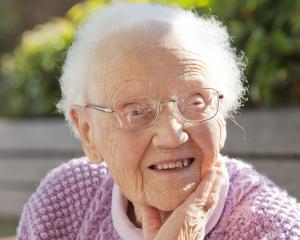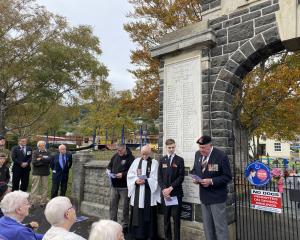As if on cue, the return last evening to New Zealand of the 19th rotation of the New Zealand Provincial Reconstruction Team (NZPRT), having completed a six-month deployment in Afghanistan, is a timely reminder that even in times of relative world peace there are soldiers in the theatre of war.
There are casualties, too. In the past year, between the SAS on deployment in Kabul and the NZPRT in Bamiyam, the lives of three New Zealand soldiers were lost in Afghanistan: Special Air Service Lance Corporal Leon Smith was killed after being struck by a Taliban bullet in Kabul on September 28 and SAS soldier Corporal Doug Grant was killed by Taliban gunfire in Kabul on August 19.
Earlier this month, the death of 26-year-old Corporal Douglas Hughes, believed to be a suicide, brought the total losses over the period of deployment in that country to five.
The circumstances of Corp Hughes' death remain unpublicised and it would be wrong to speculate on its nature or causes. But what is clear is that not all casualties of war are killed by enemy bullet or bomb. As New York Times columnist Nicholas Kristof writes: "For every US soldier killed on the battlefield this year, about 25 veterans are dying by their own hand". Those who survive front-line action often return ill-equipped to resume "normal" lives.
Even the role of peacekeepers pits men and women of the armed services against extremes of human behaviour and in 2012 New Zealand servicemen and women are active from Timor-Leste to the Solomon Islands and Egypt. We should not forget those who continue to serve and whose duty places them in daily danger.
By the standards of the last century - World War I, World War 2, the Korean War, the Vietnam War, the Gulf War - the conflicts of the 21st century, including the Iraq war and the occupation of Afghanistan, may seem minor.
But all wars and conflicts extract sacrifices and demand a toll on those who participate, and their loved ones. And while some perversely say the ceremonies, the formalities and the marking of such special days can be misconstrued as a glorification of war, the real purpose - as the Last Post so movingly reminds us - is to remember.
It was former New Zealand Governor-General Lord Cobham who once said: "We can best honour the fallen by doing our best in our everyday lives to implement the ideals in which they believed and for which they died".
In those apt few words is to be found the meaning for all those who might have once thought or said that Anzac Day has no relevance for them. It is not to revel in the outcomes of human conflict: it is to mark those who did not survive the fires of battle, to reflect on their sacrifice and how we, as a society, might honour their memories with our own behaviour.
Part of that duty is to study the nature of conflict and find ways, wherever possible, to avoid it. So many servicemen and women have come back from war with the message that it is hell on earth.
But as history shows, this is not always possible - and that is when the real sacrifices are called for in order that the many can live according to values protected by the few.
While the ranks of veterans continue to deplete, the ideals they stood for live on in today's ceremonies. Many of us still have parents, uncles, grandfathers and other relatives who either fought for their country or otherwise served.
This is their day, but it also belongs to the rest of us - including the coming generations who increasingly gather at dawn services and parades to listen and learn and bear witness.
There are things in life that are worth fighting for - "freedom" in its various manifestations being one. It is an unfortunate, even tragic, reality that from time to time men and women are called to do just this.
Today we gather to pay our respects to them and to those many who went before.












